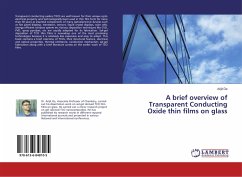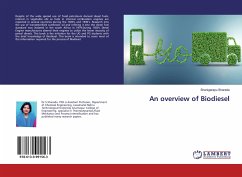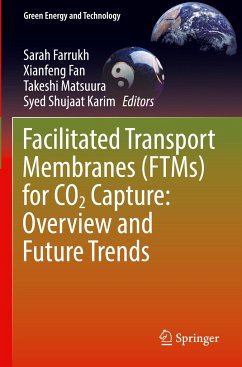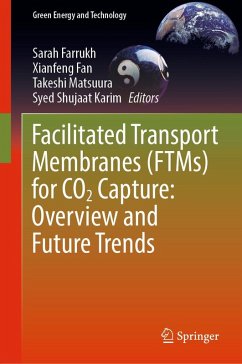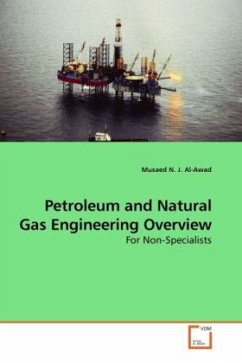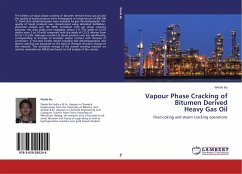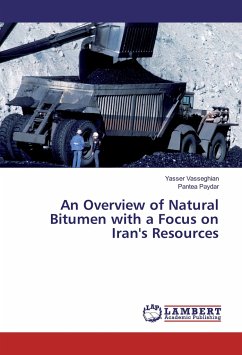
An Overview of Natural Bitumen with a Focus on Iran's Resources
Versandkostenfrei!
Versandfertig in 6-10 Tagen
24,99 €
inkl. MwSt.

PAYBACK Punkte
12 °P sammeln!
When volatiles of crude oil in the depths of the earth are evaporated over time through weathering, a glossy black substance remains which is called bitumen. Bitumen is a non-hazardous, naturally occurring hydrocarbon resin which is used in many industries, including road construction, polish, and the printing inks and paint. It is also employed to insulate tanks, tubes and even moldings. Bitumen is applied in oil well drilling mud and cement, asphalt modifiers, foundry sands additives and an extensive range of chemical products. The addition of specially-treated bitumen to water-based drillin...
When volatiles of crude oil in the depths of the earth are evaporated over time through weathering, a glossy black substance remains which is called bitumen. Bitumen is a non-hazardous, naturally occurring hydrocarbon resin which is used in many industries, including road construction, polish, and the printing inks and paint. It is also employed to insulate tanks, tubes and even moldings. Bitumen is applied in oil well drilling mud and cement, asphalt modifiers, foundry sands additives and an extensive range of chemical products. The addition of specially-treated bitumen to water-based drilling fluids minimizes whole washouts by stabilizing shales, and properly seals highly penetrable sands while reducing torque and drag. Different forms of bitumen in terms of purity and life are liquid, semi-solid, solid and with different solubility in the carbon tetrachloride. Although bitumen and coal are different but in some physical properties, bitumen is similar to coal or tar so that it was introduces as a dried form of tar. Some forms of bitumen can be used directly in general applications while some others should be processed before use.




